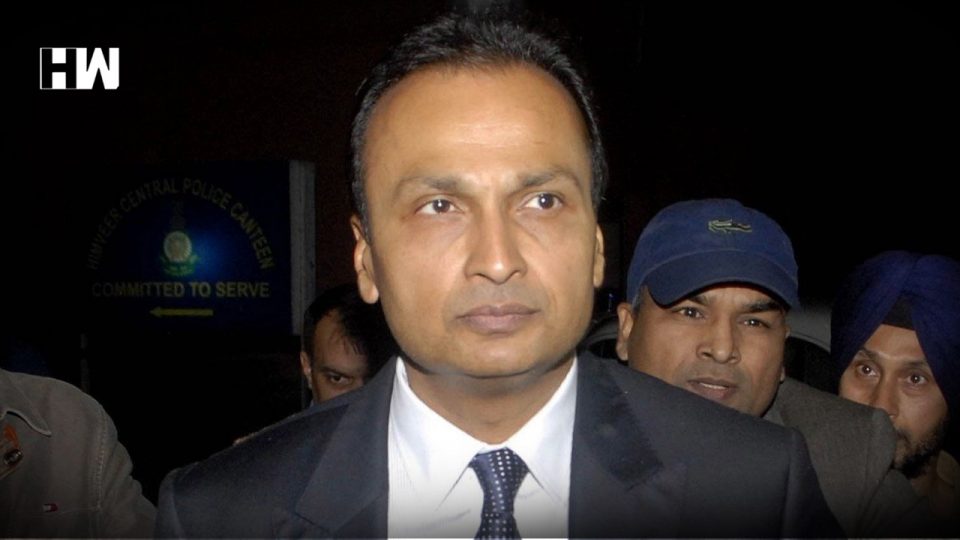RCom soon became debt-ridden and much as Mr. Ambani hoped to sell its assets and repay its lenders as he had personally promised, that did not work out
Mumbai: It was in the year 2006 that Mr. Anil Ambani became the chairman of Reliance Communications (RCom), after having got it in settlement of his separation feud with his brother Mr. Mukesh Ambani. The Company did well in its initial years rising to become the number two telecom company in India, but its delayed shift from the CDMA technology to GSM proved disastrous and cost its business and leadership position too. Any chances of its revival were lost after the advent of Reliance Jio in 2016, which unleashed a price war and competition that few could withstand. Like any other Anil Ambani group company, RCom soon became debt-ridden and much as Mr. Ambani hoped to sell its assets and repay its lenders as he had personally promised, that did not work out. The likes of Ericsson, however, managed to corner him in the Supreme Court on charges of contempt of court and recover their dues of about Rs. 500 crores, but for all other lenders, vendors and creditors of RCom, it has been a story of failed promises and huge losses due to unpaid dues.
RCom owes over Rs.50000 crores to banks/lenders today, with little recovery in the pipeline and the recent Supreme Court judgment has foisted a liability of Rs. 28314 crores on it, towards past license fees/spectrum dues. That explains why it declared a huge loss of Rs.30142 crores for the September 2019 quarter, over a paltry turnover of less than Rs.400 crores. The promoter Mr. Anil Ambani now holds a stake of a mere 10.48% therein, of which 46% is pledged with lenders. It is due to its inability to repay debts that the company was admitted for the IBC resolution process in May 2019 and has recently been officially declared bankrupt. Its board of directors was superseded by a resolution professional (RP) in May 2019 itself, who now controls the affairs and assets of the company, as he now seeks to liquidate it, by selling its assets and repaying its liabilities. All this is being done by the RP, who controls the company, with no powers whatsoever to Mr. Ambani, even though he has continued to be a director of the company since then. A couple of days ago Mr. Anil Ambani and four others resigned as directors of RCom. He said in his resignation letter that RCom is in control of the RP and not the board since May 2018 and since its resolution is imminent, he has now resigned as its director.
The fact is that Mr. Ambani was rendered powerless in May 2018 itself, when the company was admitted to the IBC process and its board was superseded by the RP appointed by the NCLT. The other fact is that Mr. Ambani will continue to be responsible for all acts of the company done under his tenure as director of the company, even though he has put in his resignation, as is provided in the respective laws. Thus if there are any instances of any misdeeds or malpractices or violations of any law, which were committed by RCom under his tenure and for which the directors could be personally held liable and punished with penalty and prosecution under the applicable law, then he will continue to be held liable even after he has now tendered his resignation. There is no escape from that. He could have actually put in his resignation when the company went into bankruptcy proceedings in May 2018 itself, when he was superseded by the RP. That remains a mystery to us. The question thus is, why now. To us, the reasons would be as under:-
- To avoid the hassles of liquidation which the directors of the company would face by way of summons, notices, hearings, personal appearances, contempt of court, etc.
- To avoid any allegations about the deterioration in the assets of the company or aggravation of its liabilities, which are likely if he is a director of RCom.
- To avoid the taint of being the director of a failed, bankrupt company under liquidation.
- To move into the capacity of being a financial creditor of RCom, such as to be compensated for liabilities he may pay by virtue of any personal guarantee or act on his part, in his personal capacity as director of the company.
- To not let the shadow of a failed company impair his other directorships/businesses.
As an independent media platform, we do not take advertisements from governments and corporate houses. It is you, our readers, who have supported us on our journey to do honest and unbiased journalism. Please contribute, so that we can continue to do the same in future.

